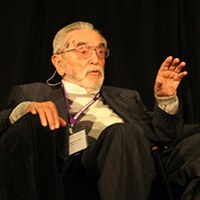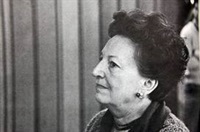EP90 Invited Address 02a - The Political Landscape of Family Therapy - Salvador Minuchin, MD
- Average Rating:
- Not yet rated
- Topic Areas:
- Invited Addresses | Family Therapy | History of Psychotherapy | Psychotherapy | Cultural and Social Contexts
- Categories:
- Evolution of Psychotherapy | Evolution of Psychotherapy 1990 | Pioneers in Couples and Family Therapy
- Faculty:
- Salvador Minuchin, MD | Mara Selvini Palazzoli, MD
- Duration:
- 1 Hour 26 Minutes
- Format:
- Audio Only
- Original Program Date:
- Dec 13, 1990
- License:
- Never Expires.
Description
Description: Minuchin reflects on how family therapy has evolved alongside shifting political and cultural tides. He contrasts early structural models with later constructivist approaches, noting how each reflects assumptions about power, class, and expertise. Using a case of a mother navigating child welfare systems, he illustrates the complexities of working with underserved families and calls for culturally responsive, socially aware interventions that don’t ignore systemic constraints.
Syllabus Description: The theoretical concepts of family therapy have evolved since their beginnings in the 1950s. If we look at the political landscape of the '50s, '60s, '70s, and '80s, we see that family therapy parallels the political ethos of the time.
Educational Objectives:
- To give psychotherapy a space in social context
- To highlight the ideological dangers of decontexted theory
*Sessions may be edited for content and to preserve confidentiality*
Credits
Faculty

Salvador Minuchin, MD Related Seminars and Products
Salvador Minuchin, MD, developed Structural Family Therapy, which addresses problems within a family by charting the relationships between family members, or between subsets of family. He was Director of the Philadelphia Child Guidance Clinic. Although it was minimally staffed when he began, under his tutelage the Clinic grew to become one of the most modeled and respected child guidance facilities in the world. In 1981, Minuchin began his own family therapy center in New York. After his retirement in 1996, the center was renamed the Minuchin Center. Dr. Minuchin is the author of many notable books, including many classics. His latest is Mastering Family Therapy: Journeys of Growth and Transformation. In 2007, a survey of 2,600 practitioners named Minuchin as one of the ten most influential therapists of the past quarter-century.

Mara Selvini Palazzoli, MD Related Seminars and Products
Mara Selvini Palazzoli, MD, received her MD from the UNiversity of Milan in 1941. She was Director of the New Center for Family Therapy in Milan, and also served on a number of editorial boards. The recipient of the Distinguished Contribution to Research in Family Therapy award from the American Association for Marriage and Family Therapy, she was the author or coauthor of five books, primarily on her approach to understanding and treating families.


